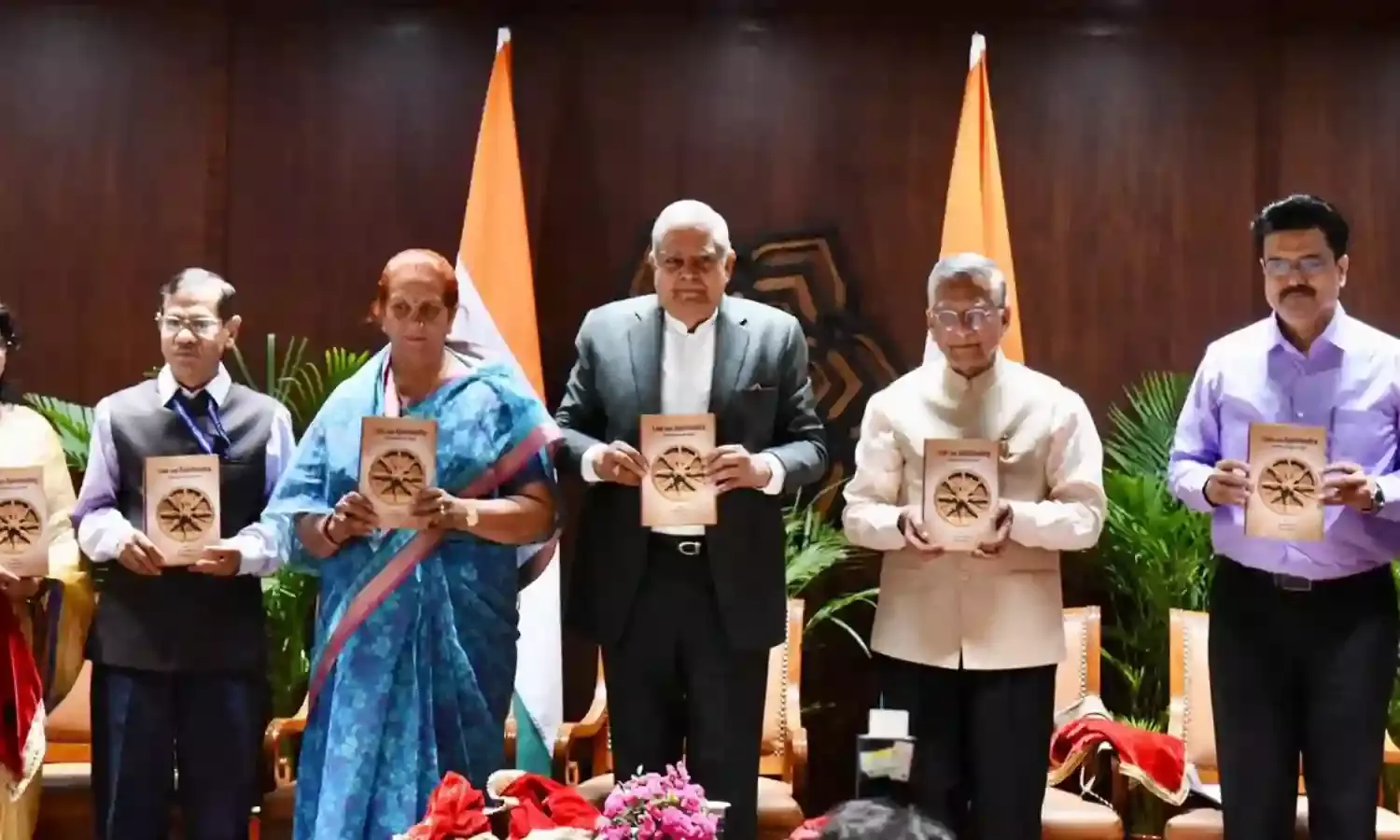Soothing To Note That Privileged Pedigree Has Been Compulsively Made Accountable To Rule Of Law: Vice President Jagdeep Dhankhar

While speaking today at a book release event, Vice President of India Jagdeep Dhankhar said that it is soothing to note that the privileged pedigree has been compulsively made accountable to the rule of law. He said that he has seen a transformative change in the last few years, which has strengthened the concept of equality before the law.
The Vice President was speaking at the event for the release of the book "The Law and Spirituality: Reconnecting the Bond" by Prof. Raman Mittal and Dr. Seema Singh.
Attorney General R. Venkataramani and Vice Chancellor of Delhi University Prof. Yogesh Singh were also present at the function in the Vice-President Enclave, Delhi.
"Friends, it is soothing to note that the privileged pedigree has been compulsively made accountable to the rule of law. We are seeing it, and there is bound to be resistance to it when people are used to be treated very differently, when they are assured by upbringing or otherwise that they have some kind of immunity from the law. And when they find the rule of law coming so close to them, making them accountable in a normal process, we must all remember fundamentally that when the law takes its course, it is the duty of society to ensure that we take recourse to legal remedies", the VP said.
In a seeming reference to the recent arrest of prominent politicians, Vice President Dhankhar said, "Unfortunately, when the legal process is set in motion, I don't understand why people should take to the streets because the fundamental of democracy is against the rule of law. Is it fair administration? And the fair administration emanates from a robust judicial system. We can be proud of our judiciary, how quickly it responds to citizen-centric issues. No country can claim to have the kind of robust judicial mechanism as we have in this country—fast, expeditious, and fairless".
He said that there was a time when some thought they were beyond the reach of the law. If, in a society, someone can get away by benefiting after engaging in transgression of the law, they are the sole beneficiary, but the entire society suffers, he said. He added that in democracy, we feel that jump of the heartbeat that explicitly questions, "How come someone is more entitled than I am?" That is equality before the law. "That change we have seen", he said.
Speaking about the subject of the book, the VP said, "Bharat, home to 1/6 of humanity, is a spiritual centre of the world. This is the acknowledged reality. Our 5000 years civilizational ethos reveals it in every sense, and this was carried out to globe in more meaningful manner. In this contemporaneous time, by our G20 presidency, the world had the occasion to be exposed to the spirituality of this great Nation. When at about 60 locations G20 functions were held in every state and union territories of this country and the main function Bharat MandapamG20 main function and P20 at Yashobhoomi".
He said that it is time for us to reflect on how we sustain our age-old legacy. This legacy is hard-earned through several mechanisms, he said. "I had the good fortune to find out the Hon’ble members from the parliament, as to how many of you have physically seen our Vedas, our Upanishads, our Puranas? We talk about them day in, day out, but have you really got into depth of it? I therefore made a suggestion to the Hon’ble ministers to make available to every parliamentarian Vedas", he added.
"Trust me, having Vedas by your bedside will do a lot of good to humanity because the human beings that will test the Vedas will speak out of his soul, not out of his minor heart. When one speaks out of mind, they are dominated by rationality; when one speaks out of heart, they are dominated by emotive aspect also, but when there is a soul convergent, the things are very different", the VP said.
He said that Bharat with its civilization of 5000 years, has continually disseminated the message of 'Dharma' and 'Spiritualism' to the world through its timeless scriptures, philosophical treatises, and cultural practices.
He also said that law broadly indicates a regime that defines what people may do or not do. "Adherence to the rule of law is the nectar of democracy. There have been regimes where adherents to the rule of law have been far more effective and possible in democracy, but the essence of democracy, the nectar of democracy, lies because the rule of law is deeply embedded with the concept of equality before law" he said, adding that a democracy has no meaning at all if there is no equality before the law.
He commended the effort by Professor Raman Mittal and Professor Seema Singh in bringing out the book and said, "I can tell you it's a treasure. You will be exposed to the erudition and expert knowledge of the author that has been well crafted in minimum words".

